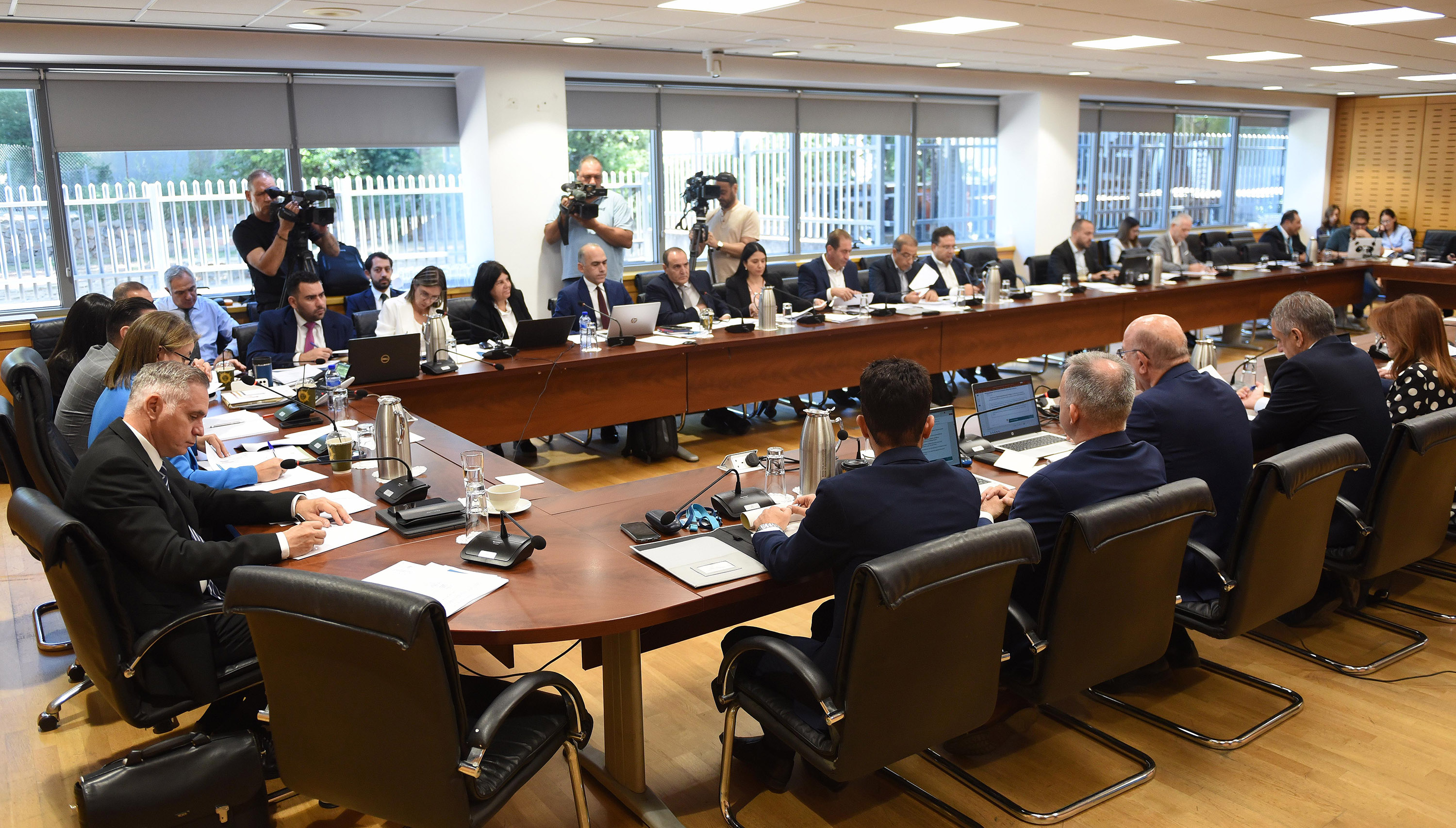Finance Minister Makis Keravnos on Monday accused Greek Energy Minister Stavros Papastavrou of “fake news” over the matter of the Great Sea Interconnector, after the latter had said last week that the former “does not show” the studies which he says show the project to not be sustainable.
Addressing the House finance committee, he said the studies he had referenced had been commissioned by Cypriot Energy Minister George Papanastasiou, that they were “properly delivered” to the Greek energy ministry, and that they had even been sent to Papastavrou’s predecessor Theodoros Skylakakis.
“We all know the studies and their findings,” he said, adding that “some people’s concerns are reasonable”, and that he himself has “many concerns”.
He then said that he is the “last person who would seek a rift between the Greek and Cypriot governments”, but expressed his distaste at Papastavrou’s statements, saying that his own predecessor Constantinos Petrides had received the studies from the energy ministry during his time in office.
Papastavrou had a week ago decried what he described as “constantly conflicting messages from the Cypriot side” over the matter of the interconnector.
“The finance minister [Makis Keravnos] questions the viability of the project both before and after the meeting of President Nikos Christodoulides and Prime Minister Kyriakos Mitsotakis in New York,” he said during an appearance on Open TV.
He added that Keravnos “says that it should not be done and it is not sustainable and refers to two studies which he does not show” to Cypriot Energy Minister George Papanastasiou.
“We have a project upon which we have agreed and Keravnos is now telling the European Union that he is not going to abide by [Cyprus energy regulatory authority] Cera’s decisions. All of this creates obstacles. The project is stuck in a constant questioning of its viability,” he said.
He also made reference to comments made by President Nikos Christodoulides, wherein he had fired a shot across the bows of Greece’s independent transmission system operator Admie over its demands that Cyprus pay it €25 million for the project, and said that Cyprus “will not be blackmailed by any head of Admie”.
“Fifty-one per cent of Admie belongs to the Hellenic Republic. The Hellenic Republic does not engage in blackmail. It only speaks institutionally,” Papastavrou replied.
The rift between the two governments is sourced from the Cypriot government’s initial agreement to make five annual payments of €25m to Admie before the interconnector is operational, but which it has thus far withheld.
The payments would in effect help finance the project and ensure that Admie, its 51 per cent shareholder and implementing body, will have a stable income while investing in the project before it turns a profit, but the Cypriot government has cited a lack of tangible progress on the project and differences in opinion regarding how the money should be sourced as its reasons behind not paying the money.
To this end, Papanastasiou had said last month that Cyprus will pay the first €25m instalment when the project is being “implemented in its entirety”, and that the construction of cables alone is “not enough” to meet this criterion.
The government had initially planned to utilise funds made available to it through the European Union’s emissions trading system (ETS) to make the payments, so as to prevent the burden of the payments from falling on the taxpayer.
Admie had warned that this arrangement may violate the EU’s rules on state aid, and as such asked the Cyprus energy regulatory authority (Cera) to begin charging consumers instead.
In September, Greek Deputy Prime Minister Kostis Hatzidakis had called on the Cypriot government to “clarify its position” over the project after Keravnos openly spoken of the two “independent and serious organisations” which have “concluded that the project is not sustainable”.
He added that seabed surveys to determine where cables we laid “have not even been completed” and that the completion of those surveys is “decisive for the total cost of the project”.
This version of events had been disputed by Greek Foreign Minister Giorgos Gerapetritis, who had said that surveys on the seabed in advance of the laying of electricity cables “did not stop”, but that in fact, “the research was completed according to its planning”.






Click here to change your cookie preferences